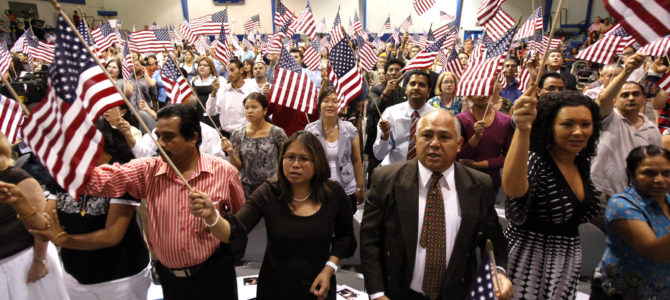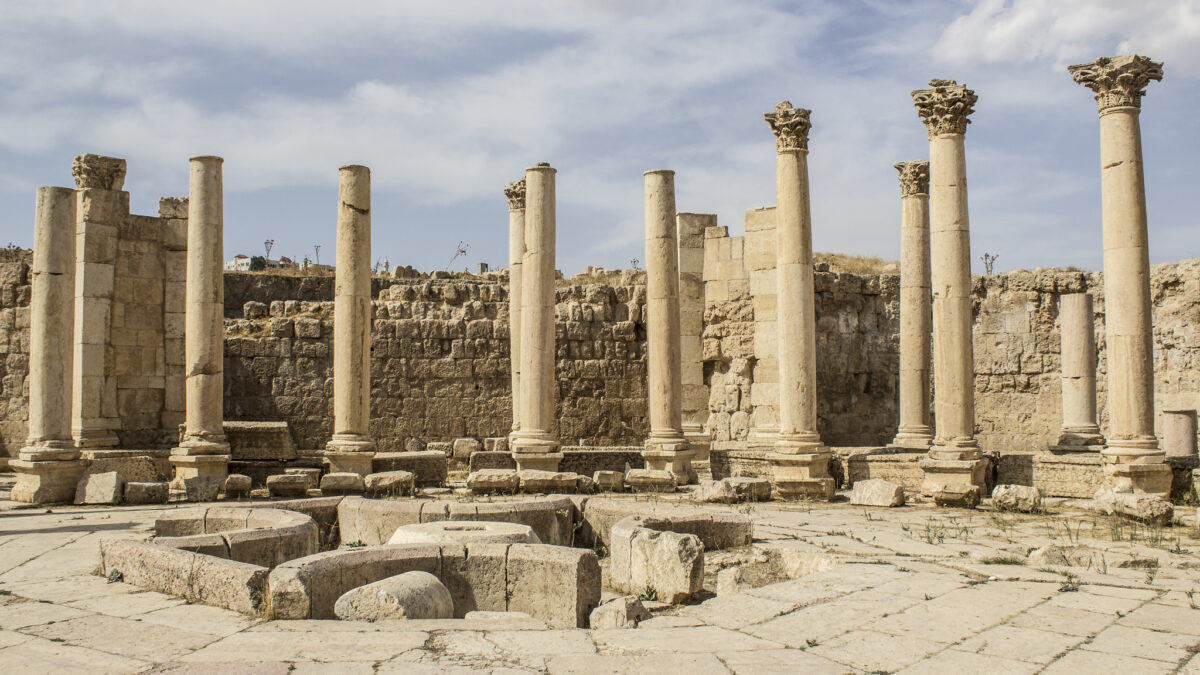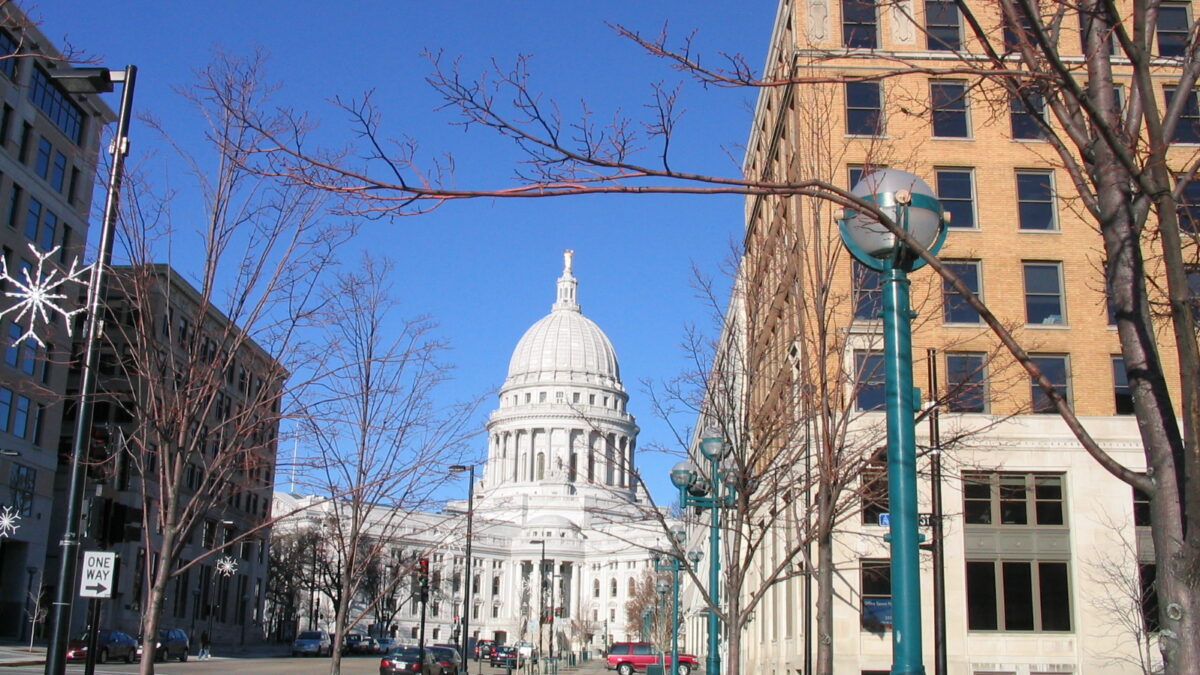
Earlier this month, the Washington Post featured an op-ed entitled “I am an uppity immigrant. Don’t expect me to be ‘grateful,’” by New York University professor Suketu Mehta, an author who recently published a book arguing that “immigration is a form of reparations” for past American crimes.
In the article, Mehta accuses America of stealing “the futures of the people who are now arriving at its borders,” of causing many immigrants “to move in the first place,” and of “despoil[ing] their homelands and mak[ing] them unsafe and unlivable.” He censures the West for “despoil[ing] country after country through colonialism, illegal wars, rapacious corporations and unchecked carbon emissions.”
Mehta asserts, for such reasons, that he’s “entitled” to live in the United States. Yet a few brief historical reflections will demonstrate that immigration as reparations is a bit more complicated than Mehta lets on. Moreover, no one, whether first-generation immigrants or direct descendants of voyagers on the Mayflower, deserves to be here. Being American is a gift for which every citizen should be inordinately grateful.
No Country Is Free of Guilt for Horrible Crimes
First, Mehta’s conception of American history, identity, and foreign policy is quite skewed. He’s indeed right to criticize the United States’ many disastrous and damaging blunders around the world, from the Horn of Africa to the Levant to Latin America. Yet it’s ludicrous to claim that all the problems of these nations and peoples lie at the United States’ feet, or that the United States’ egregious errors somehow necessitate reparations via immigration. As Jeremy Black in “Imperial Legacies” astutely argues, the countries that have suffered at the hands of American foreign policy had plenty of problems before a single American boot or dollar ever crossed their border.
Somalia, the original homeland of Rep. Ilhan Omar, D-Minn., was impoverished and violent long before the United States got involved there during the Cold War. European colonialists caused many of Somalia’s problems, as they did for many other African nations. But other problems, such as female circumcision, slavery, and war, long predate the arrival of Europeans.
Likewise, long before the U.S. government and American companies sought to manipulate the banana republics of Latin America, the region was a mess following centuries of rapacious Spanish and Portuguese imperialism. Brazil was the last country to allow slavery, in 1888 — 20 years after America’s Emancipation Proclamation.
Again, prior to the Spanish and Portuguese, Latin America could be just as cruel. Ask the many conquered peoples who served as a centuries-long source of victims for Aztec human sacrifice.
Every nation’s hands are bloody in world history and geopolitics. Certainly, America shares in the blame. Yet it is hardly the only culprit. Moreover, those who attack the legacy of imperialism hardly have a word of criticism for their own cultures’ misdeeds, be it the violent repression of ethnic minorities, conquering of other peoples, or theft of resources.
The Problems With Reparations
Consider Mehta, an Indian American. Why, exactly, would he qualify for “reparations”? America never ruled India nor had any significant foreign intervention there. Moreover, Mehta is notably silent on the many evils Indian society and its caste system have caused for its own people — 200 million Indians are Dalits, or “untouchables,” who are ruthlessly discriminated against.
India is itself an imperial power, from its treatment of its Muslim minority to its violent repression of Sikh sovereignty movements. Anyone who studies Indian history, whether modern or pre-colonial, knows the subcontinent has always been a brutal place to live.
The idea that groups should pay reparations for ancestral misdeeds raises the question of how far back we must go to seek reparations for ancient offenses by one group against another. Should Japan pay for its use of “comfort women”? Should Muslim North African nations pay reparations to European countries for the Barbary slave trade of the 16th to 17th centuries, which enslaved more than 1 million Europeans?
The fact of the matter is that Mehta can only make such an argument within a construct such as America, where many citizens have a conscience and think maybe they should do something to atone for past misdeeds. I don’t see Turkey exhibiting much interest in reparations for its genocidal murder of Armenians and other ethnic Christian minorities, nor Japan for its rape and pillaging across the Pacific.
Indeed, both countries, and others, aggressively try to ignore or rewrite these narratives precisely to shift blame elsewhere. America may not be perfect, but we are far more honest about our mistakes and willing to make amends than most of the world is.
Be Grateful, not ‘Uppity’
This brings us to the second part of the response to Mehta, the “uppity immigrant.” Thankfully, many immigrants and descendants of immigrants in the United States do not harbor the grudges Mehta holds against his adopted homeland, nor believe America “owes” them anything. Nor do they think they must grovel at some person or groups who supposedly have more reason to call themselves American.
Every person born in America, or who obtains citizenship, is indeed a citizen with certain unalienable rights. But that doesn’t mean we should vainly claim to be “entitled” to them, especially when much of the globe mocks the rights our First Amendment guarantees, not to mention the rest of the Bill of Rights.
As the saying goes, “Freedom isn’t free.” That we were born here or became citizens is a gift, a result of a combination of circumstances largely out of our control. Mehta’s family, as with mine, might just as easily have been denied entry when it approached American shores.
My ancestors emigrated from Ireland and Poland, nations that also saw their fair share of brutal oppression, violence, and intolerance. They didn’t perceive their new status as citizens of this glorious country as something to which they were entitled. They were simply glad to be welcomed in.
And they were grateful. Profoundly grateful. They instilled that sense of gratefulness in me. Unlike Mehta, I would never say I deserve to live in a country as wonderful as the United States. It is a gift, bequeathed to me by my family, by those earlier inhabitants who welcomed my ancestors here, and by God.
Old and New Americans Should Unify
Ultimately, a proper give-and-take should exist between those who have been in America for several generations and those who more recently became citizens. Of course, those with deep American roots should not antagonize newer Americans with threats to “go home,” if by this they mean certain people legally allowed entry into the United States don’t belong. This, as I’ve argued above, reflects an ignorance of the fact that all Americans should be humbled and grateful to live here.
“Older Americans,” however, should expect “newer Americans” to learn, appreciate, and honor the culture and mores of our land. American identity is indeed unique. Certainly, it shifts with each generation, but it also has remained quite stable in its beliefs and customs over the last few centuries. As Thomas Sowell argues, “older Americans” should also recognize and appreciate the talents and customs of “newer Americans” who make our land better, smarter, and more interesting.
I have met many recent immigrants as classmates, as coworkers, and as business owners, who recognize the blessings and opportunities of our country. They bear no shame for their inherited nation, despite its many imperfections. Many promote sports teams with supposedly “racist” names, gladly honor “old white men” of American history on their walls, and have even embraced the alleged “oppressor religion” of Christianity. I know many who harbor no ill will toward America for its role in their own countries’ problems. Indeed, in many respects, it was America that saved them from oppressive, violent regimes.
Rather than ridicule America’s past, as if the travesties of U.S. history nullify its soaring glories, these new citizens have gladly and willingly embraced a part of its cultural inheritance in their chosen profession. For America to persevere, we’ll need a lot less of Mehta’s immigrant “uppityness” and a lot more humble appreciation for America and its political and cultural traditions.









